
Conflicts and coexistences, authoritarianism, revolutions: the Middle East is an extremely dynamic and fascinating region that is more topical and relevant than ever, but often subjected to stereotypes in the media. With a fascinating history, a culture that has had and still has a great influence on the 'West', the region is a global player.
Are you interested in the conflicts in Syria, Yemen, Israel and Palestine, Iraq and Iran? Do you want to gain a better understanding of the role that religion plays in politics in Lebanon, Israel and Egypt? Do you wonder about the links between some European countries and the Middle East region? The relations between Muslims, Christians and Jews and other religious groups? Or would you like to know more about the cultural backgrounds of refugees from the region? Would you like to explore the vibrant tradition of cartooning in the Middle East or discover cultural heritage policies in a region known as the cradle of civilization?
Then Middle Eastern Studies is for you.
With the UG degree programme in Middle Eastern Studies, you will understand the many facets and backgrounds of this region. The UG degree offers a broad and diverse programme that focuses on modern developments in the Middle East and North Africa. You will study four core themes: history, politics, culture, and religion.
The history theme focuses mainly on developments from the 19th to the 21st centuries in countries such as Egypt, Saudi Arabia, Lebanon, Israel, Palestine, Turkey, and Iraq. The course units on politics will increase your understanding of themes such as colonialism, state formation, dictatorship, authoritarianism, sectarianism and conflicts. You will also study the cultures of the Middle East by looking at aspects such as literature, architecture, and art. The background and the role of religions in the modern-day Middle East will help you understand the diversity of Muslim, Jewish and Christian communities in a comparative perspective. The contemporary themes that are addressed will provide you with an understanding of current developments that are also very important to Europe.
In addition to the four core themes, you will also study a
modern language that is spoken in the region, Modern Arabic. You
will spend one semester in the Middle East during your second year:
either at the Dutch-Flemish Institute in Cairo, Egypt, or the Dutch
Institute in Rabat, Morocco. The degree programme will facilitate
your stay, and there will be no extra study costs involved.
This way you will gain a unique knowledge of the Middle East,
become a critical thinker with a broad knowledge of the Middle
East, and acquire many skills that you will also be able to use in
your future career and personal development.
Read more about the
department of Middle Eastern Studies!
Sign
up now
for the Open Day
on Saturday 12 April!
The first year will introduce you to the four focus areas of the degree programme: history, politics, culture, and religion. You will, for example, study the modern history of the region, familiarize yourself with Judaism and Islam, discuss current political developments in the course unit Countries and Societies, and get to know cultures in the Middle East by studying important cities such as Jerusalem and Istanbul. In addition, you will also start to learn Modern Arabic.
| Semesters | ||||
|---|---|---|---|---|
| CoursesCourse Catalog > | 1a | 1b | 2a | 2b |
| Geschiedenis van het moderne Midden-Oosten (5 EC) Inleidend overzicht van de moderne geschiedenis van de regio. | ||||
| Joden en Jodendom in het Moderne Midden-Oosten (5 EC) Inleiding in de geschiedenis, geschriften, geloofsopvattingen en rituelen van het jodendom. | ||||
| Taalvaardigheid Arabisch 1 en 2 (10 EC) Taalvaardigheid: als voorbereiding op het buitenlandprogramma in Cairo of Rabat. | ||||
| Academische vaardigheden Midden-Oostenstudies 1 (5 EC) Het aanleren van academische vaardigheden en het opzetten en schrijven van een academisch onderzoek. | ||||
| Islam en Moslims in het Moderne Midden-Oosten (5 EC) Inleiding in de geschiedenis, geschriften, geloofsopvattingen en rituelen van de islam | ||||
| Politiek en Internationale Betrekkingen in het Midden-Oosten (5 EC) Bestudering van Midden-Oosten steden: actualiteit en achtergronden van Jeruzalem en Cairo. | ||||
| Steden in het Midden-Oosten: Caïro en Alexandrië (5 EC) Bestudering van Midden-Oosten steden: actualiteit en achtergronden van Bagdad en Istanbul. | ||||
| Taalvaardigheid Arabisch 3 en 4 (10 EC) Taalvaardigheid: als voorbereiding op het buitenlandprogramma in Cairo, Rabat en Beer-Sheba. | ||||
| Academische vaardigheden Midden-Oostenstudies 2 (5 EC) Het aanleren en uitvoeren van verschillende onderzoeksmethodes die belangrijk zijn in het vakgebied | ||||
| Eetcultuur in het Midden-Oosten: erfgoed, cultuur en herinnering (5 EC) Over culturele en maatschappelijke kenmerken van het Midden-Oosten als regio. | ||||
| Semesters | ||||
|---|---|---|---|---|
| CoursesCourse Catalog > | 1a | 1b | 2a | 2b |
| Joden en Moslims in het Moderne Midden-Oosten (5 EC) De relatie tussen jodendom en islam in de moderne tijd | ||||
| Cultuur en Soft Power in het Midden-Oosten (10 EC) Bestudering van het Midden-Oosten op basis van films. | ||||
| Taalvaardigheid Arabisch 5 en 6 (10 EC) Taalvaardigheid: als voorbereiding op het buitenlandprogramma in Cairo, Rabat en Beer-Sheba. | ||||
| Islam, Politiek en Moderniteit in het Midden-Oosten (5 EC) Ontwikkelingen in de islam in de moderne tijd. | ||||
| Buitenlandprogramma (30 EC) Semester in Cairo, Rabat of Beer-Sheba | ||||
In the first semester of Year 3, you will follow a Minor. The second semester comprises in-depth course units about violence and conflict management in the Middle East and about the theme of literature and identity. You will complete your Bachelor's degree by writing a thesis.
| Semesters | ||||
|---|---|---|---|---|
| CoursesCourse Catalog > | 1a | 1b | 2a | 2b |
| Facultaire minor (30 EC) | ||||
| Conflict en Co-existentie in het Moderne Midden-Oosten (5 EC) Aspecten van geweldtoepassing en conflictbeheersing in de moderne tijd. | ||||
| Bachelor's thesis (10 EC) | ||||
| Literatuur en identiteit in het Midden-Oosten: Identiteit en Verbondehheid (10 EC) De bestudering van literatuur in relatie tot identiteitsvorming in het Midden-Oosten | ||||
| Europa in het Midden-Oosten, het Midden-Oosten in Europa (5 EC) | ||||
| Programme options |
|---|
| Minors (minor) The fifth semester of your studies is dedicated to your Minor: a coherent set of future-oriented course units. It prepares you for a follow-on Master's degree program or for entering the labour market. You can opt for a Career Minor, a Minor abroad, a University Minor or a Faculty Minor. |
| University of Groningen Honours College (honours program) The Honours College will give talented, motivated students the chance to be challenged even more by following Honours programmes and taking part in numerous other activities. The Honours College comprises a broadening part and a deepening part and has a study load of 30 ECTS credit points besides the 180 ECTS credit points from your regular Bachelor programme. |
Students are advised to spend half a year abroad with our exchange programme. It is only possible to deviate from this advice in exceptional cases.
Met het VWO examen Engels voldoe je aan de taaleis.
Met het VWO examen Engels voldoe je aan de taaleis.
Met het VWO examen Engels voldoe je aan de taaleis.
Met het VWO examen Engels voldoe je aan de taaleis.
Taaleis Engels: minimum TOEFL eis iBT 90 (met een minimum van 21 voor alle onderdelen), of IELTS 6.5 (met een minimum van 6 voor alle onderdelen). Cambridge C1 Advanced of C2 Proficiency met een minimum score van 180. Klik op de link voor meer informatie: https://www.rug.nl/let/studeren-bij-ons/bachelor/aanmelding-en-inschrijving/language-requirements-ba
The degree programme will organize a matching procedure. Attendance is optional. The advice is not binding.
Wil je in september beginnen met een bacheloropleiding aan de Rijksuniversiteit Groningen? Meld je dan uiterlijk op 1 mei aan in Studielink. De opleiding geeft je de mogelijkheid om gebruik te maken van een matchingsactiviteit, om te zien of jij en de studie bij elkaar passen. Welke matchingsactiviteiten er precies zijn, verschilt per faculteit.
Heb je vragen over matching? Kijk dan op www.rug.nl/matching
| Type of student | Deadline | Start course |
|---|---|---|
| Dutch students | 01 May 2025 | 01 September 2025 |
| 01 May 2026 | 01 September 2026 | |
| EU/EEA students | 01 May 2025 | 01 September 2025 |
| 01 May 2026 | 01 September 2026 | |
| non-EU/EEA students | 01 May 2025 | 01 September 2025 |
| 01 May 2026 | 01 September 2026 |
The Faculty of Arts believes students can decide for themselves whether they match with their chosen program based on the available bachelor program information, by visiting the Open Days, and by participating in a Webclass and/ or Student for a Day. If you are unable to attend one of these activities, a final opportunity for matching is to contact one of the students of the program in June.
If you have any further questions about matching, check out: www.rug.nl/matching
| Specific requirements | More information |
|---|---|
| previous education |
A Dutch VWO diploma, a German Abitur, an International Baccalaureate diploma, a European Baccalaureate or another diploma that is sufficient for acceptance to a Dutch university. For other VWO-equivalent qualifications, see: https://www.rug.nl/education/application-enrolment-tuition-fees/admission/procedures/application-informatie/with-non-dutch-diploma/entry-requirements/bachelor-entry-requirements/vwo-equivalent-qualifications. Students with a Dutch 'hbo propedeuse' diploma also need to meet the language requirements mentioned below. |
| language test |
International students will have to satisfy an additional Dutch language requirement, which can be met by passing the State Examination in Dutch as a Second Language (NT2, programme II). This examination guarantees Dutch proficiency at CEFR level B2. However, Dutch proficiency at CEFR level C1 or higher is recommended. |
| Type of student | Deadline | Start course |
|---|---|---|
| Dutch students | 01 May 2025 | 01 September 2025 |
| 01 May 2026 | 01 September 2026 | |
| EU/EEA students | 01 May 2025 | 01 September 2025 |
| 01 May 2026 | 01 September 2026 | |
| non-EU/EEA students | 01 May 2025 | 01 September 2025 |
| 01 May 2026 | 01 September 2026 |
If you want to continue with a Master's degree programme after your graduation, as most students do, you will have a wide range of programmes to choose from. With a Bachelor's degree in Middle Eastern Studies, you have access to the following Master's tracks at the University of Groningen:
When this BA programme is combined with certain faculty minors, you gain direct access to more Master programmes, such as Journalism.
The knowledge, understanding, and skills you acquire in the three-year Bachelor's degree programme will also provide you with good job prospects. You will be trained to become a versatile Middle East expert, a position that is currently in great demand, for example in relation to foreign politics, refugee aid, and terrorism and safety.
Our graduates are working in both the Middle East and Europe. Relatively many graduates find jobs in politics and diplomacy, for example at the Ministry of Foreign Affairs or an embassy. In addition, many of our alumni work for institutions that are involved in refugee aid, integration, safety, and counterterrorism. However, you will also able to work in journalism, for a museum, in the business world, or in academia: the broad background that you acquire in Middle Eastern Studies will provide you with plenty of options for further study and career.
(Embassies in the Netherlands and the Middle East)
(refugee work, integration, radicalism, NGOs in the region)
(SHELL, AKZO-NOBEL)
(research, PhD)
(Ministry of Defense, Ministry of Foreign Affairs)
(TV, radio, newspapers)
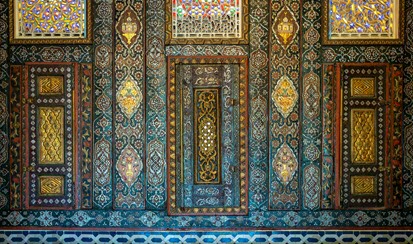
All staff members are experts in their respective fields. They conduct research that complements the profile of the degree programme well, for example in the field of jihadism, political Islam, and Arabic literature. This means that some of your classes will be directly based on the research currently conducted at the Faculty of Arts.
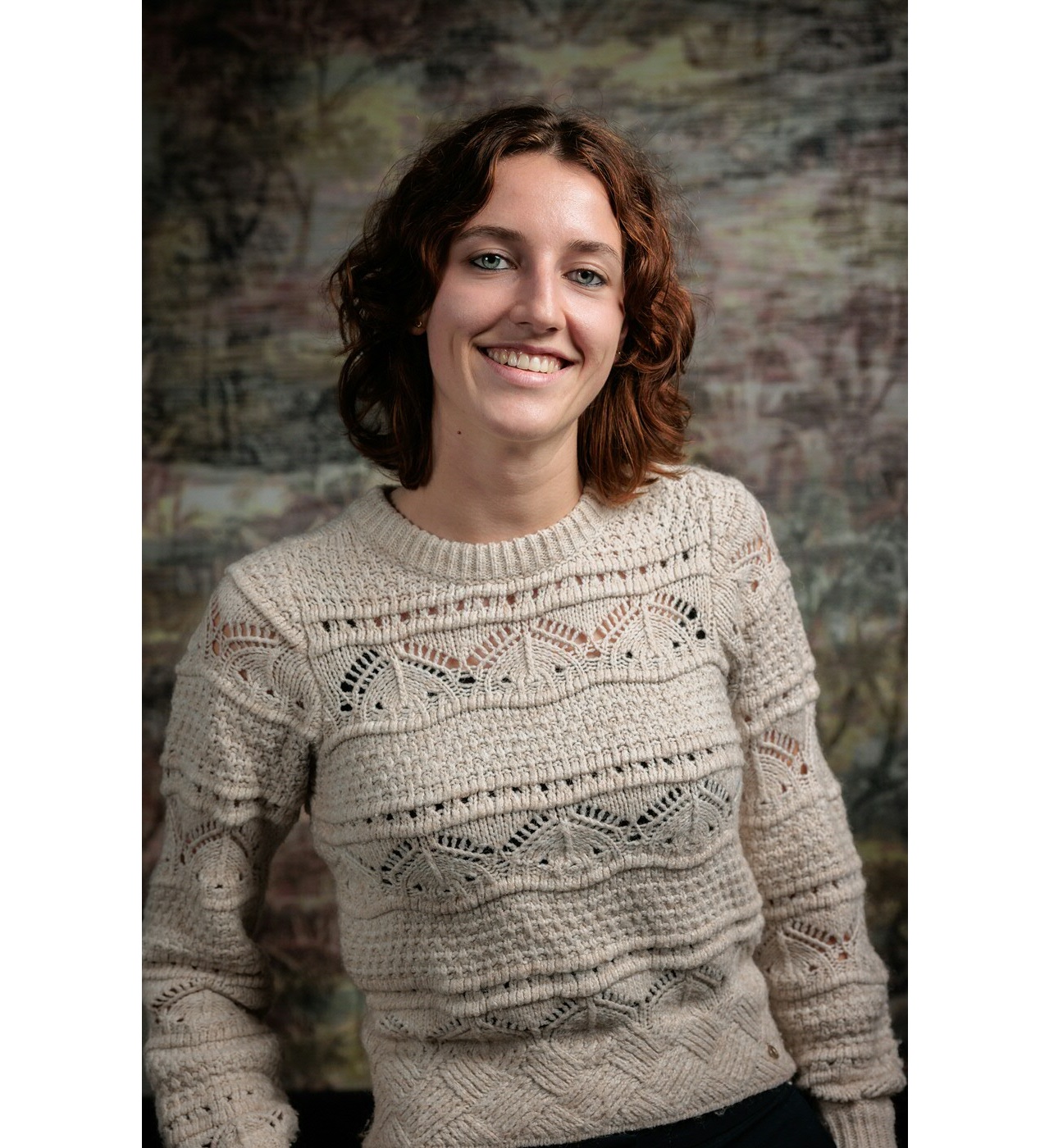
Hey! Mijn naam is Alana Swinkels, ik ben 22 jaar en momenteel een tweedejaars student Midden-Oostenstudies. Oorspronkelijk kom ik uit het zuiden van Nederland, maar ik ben voor mijn studie naar Groningen verhuisd. Buiten mijn studie ben ik ook actief in een commissie, sport ik graag bij de ACLO en werk ik bij Studium Generale. Bij mooi weer zul je me ook vaak tegenkomen in het Noorderplantsoen of op een terras!
Ik had eerst de studie International Relations gekozen. Na dit een jaar te hebben gestudeerd, ontdekte ik dat ik cultuur, geschiedenis en religie erg interessant vind en dat ik politieke theorie minder leuk vind. Daarom besloot ik Midden-Oostenstudies (MOS) als tweede bachelor te gaan volgen. Het Midden-Oosten is een enorm interessante en diverse regio, die ook vaak (negatief) in het nieuws is. Bij deze studie leer je kritisch te kijken naar de oorzaken en gevolgen van de ontwikkelingen in deze regio. En natuurlijk leer je ook Arabisch, wat voor mij een groot pluspunt is.
Lees meer over Alana en waarom zij koos voor Midden-Oostenstudies in Groningen!
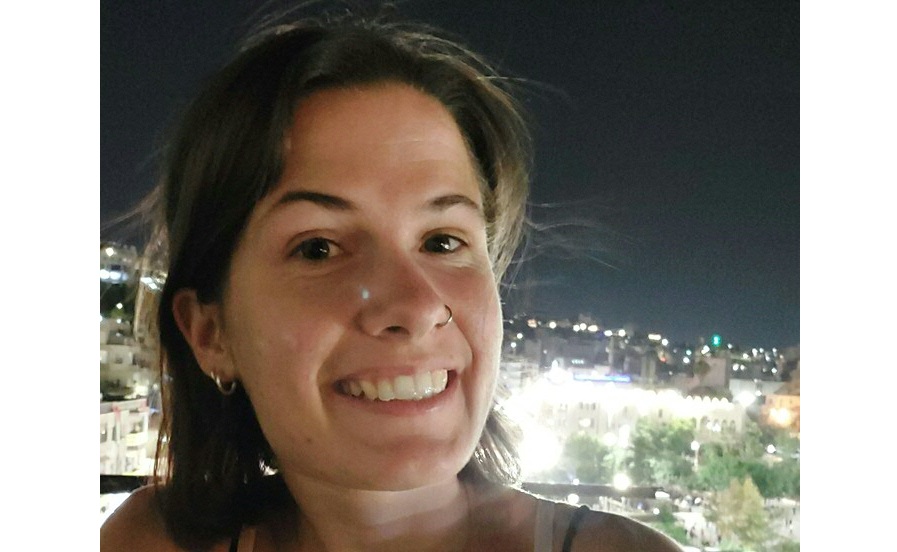
Marhaban! Mijn naam is Sara, ik ben 24 jaar en kom uit Brabant. Momenteel zit ik in het derde jaar van de bachelor Midden-Oostenstudies. Naast mijn studie werk ik ook zo nu en dan als student-assistent bij de verschillende vakken van onze opleiding.
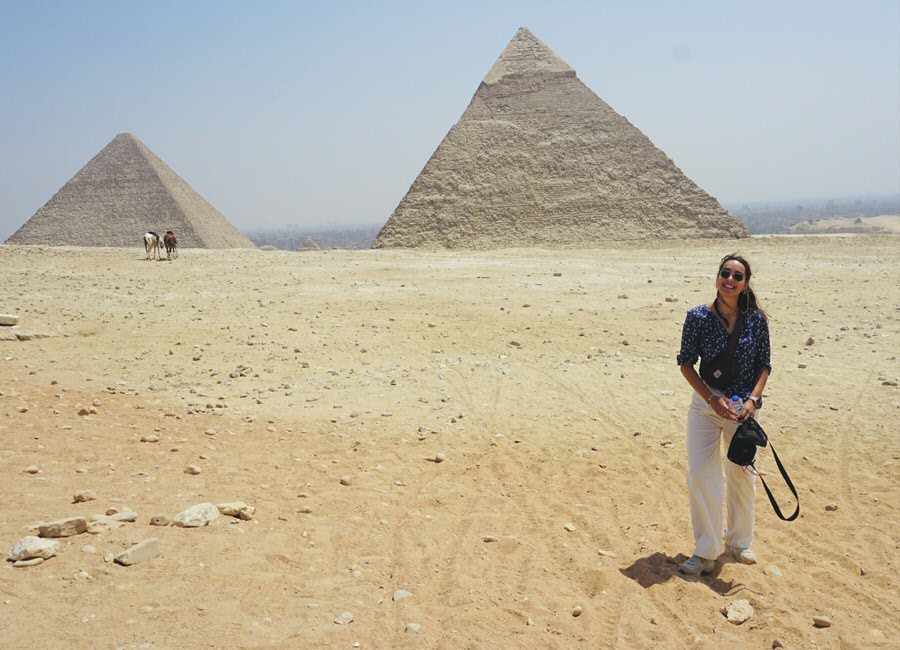
Bij het volgen van de bachelor Midden-Oostenstudies komen alle onderwerpen die te maken hebben met deze regio samen, van cultuur tot religie en politiek tot geschiedenis. Enerzijds oefent het Midden-Oosten een wereldwijde invloed uit, en anderzijds bemoeit de hele wereld zich met de ontwikkelingen binnen de regio. Bij de studie leer je hierop te reflecteren en ontwikkel je een kritische houding naar beeldvorming en stereotypen.
Het leren van een taal, Arabisch, vormt daarbij een goede
aanvulling binnen het programma.
Alle kennis uit de eerste paar jaar neem je mee tijdens het
buitenlandsemester. Dit is hét moment om het Midden-Oosten
echt te ervaren. Ik vertrok naar Caïro, waar ik veel nieuwe
inzichten heb gekregen en me bewuster ben geworden van waar mijn
interesses liggen. Daarnaast vormde dit semester de uitgelezen kans
om mijn Arabisch te verbeteren en toe te passen in het dagelijks
leven. Ik heb me op persoonlijk en professioneel niveau ontwikkeld
en zal mijn ervaringen dan ook altijd meenemen in de toekomst, wie
weet zal dit een toekomst zijn in het Midden-Oosten!
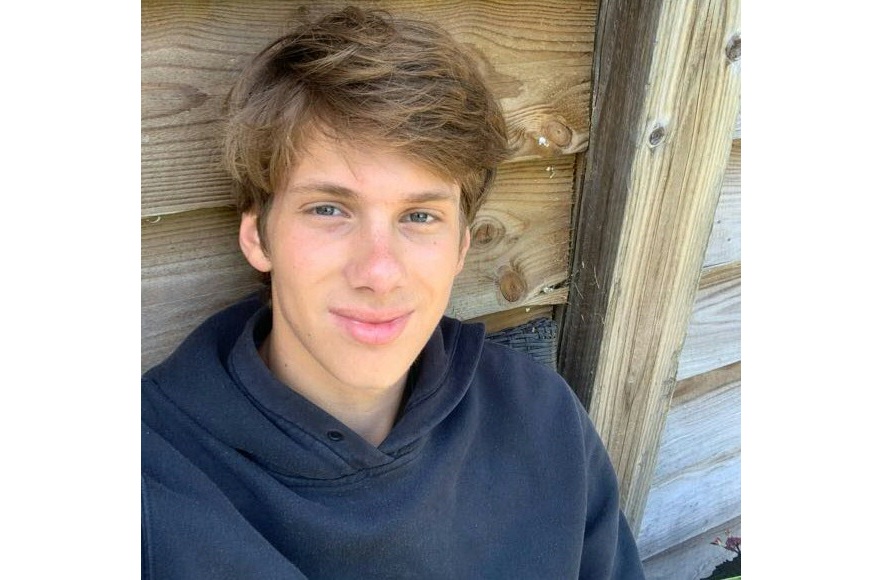
Ahlan! Mijn naam is Aron, ik ben 20 jaar oud en ben momenteel bezig met het afronden van de BA Midden-Oosten Studies.
Een bijzonder aspect aan deze opleiding is de combinatie van intensief taalonderwijs met vakken die onder meer de geschiedenis en politiek van de regio behandelen. Hoewel ik talen altijd al fascinerend heb gevonden, kwam dit in een stroomversnelling nadat ik dankzij de studie met Arabisch begon. Vanwege de combinatie met de historische bronnen uit andere vakken bestaat er een directe motivatie om de talen zo snel en zo goed mogelijk onder de knie te krijgen.
Binnen de opleiding Midden-Oosten Studies zijn er veel mogelijkheden om je eigen plekje te vinden, zowel op thematisch als geografisch vlak. Ondanks mijn initiële interesse in internationale politiek heb ik tijdens de studie langzamerhand een passie ontwikkeld voor historische ontwikkelingen rondom minderheden in de Maghreb-regio, waar ik uiteindelijk ook mijn scriptie over heb geschreven.
Are you a pre-university pupil and would you like to find out what studying at university is all about? The Middle Eastern Studies degree programme offers a web class! A web class is a course offered by the UG via Brightspace (a digital teaching environment) for pupils in the 5th and 6th years of pre-university education. The course involves ten study hours, which serve as an introduction to Middle Eastern Studies. You read texts, do assignments, and hold discussions with other prospective students and a lecturer.
Interested? Sign up for the web class.